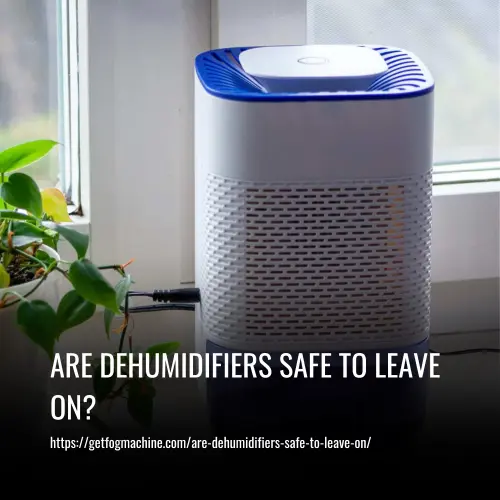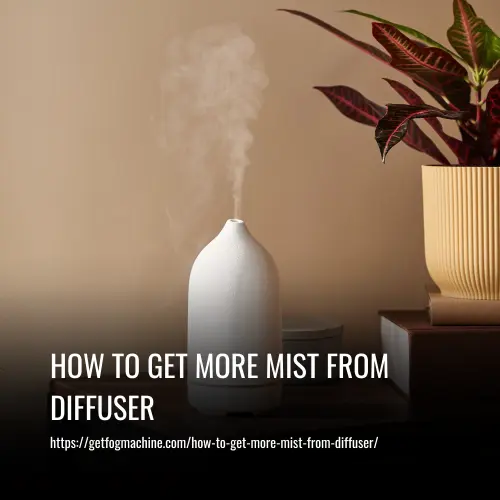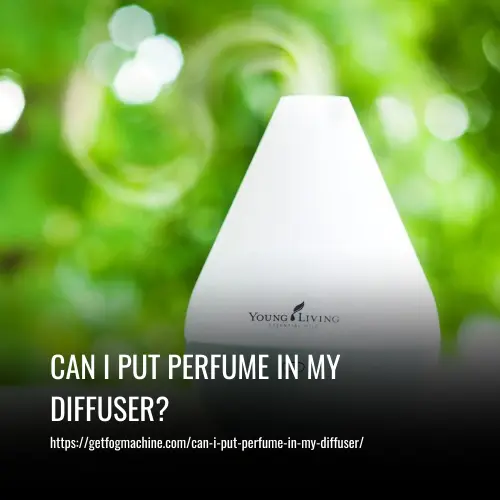Whole House Humidifier Pros and Cons
This post contains affiliate links. As an Amazon Associate, we earn from qualifying purchases.
A whole house humidifier offers several benefits. It automatically maintains optimal humidity levels, resulting in improved indoor air quality. It helps prevent dry skin, sore throat, and sinus irritations. It also protects wood furniture from drying out. A whole house humidifier requires minimal maintenance and enhances the aesthetics of the home. Moreover, it can increase the value of the property.
However, there are some drawbacks. Initial costs for purchase and installation can be high. There is also a risk of mold and mildew growth if not properly maintained. Despite these potential concerns, the advantages of a whole house humidifier make it a worthwhile investment for many households.

Pros of Whole House Humidifier
Here are some pros of whole house humidifiers:
1. Automatic Humidity Control
Whole house humidifiers have humidistats that allow you to set the desired humidity level in your home. They automatically monitor and adjust the indoor humidity to maintain a comfortable and healthy environment. This feature eliminates the need for manual adjustments and ensures that the humidity level stays within the optimal range.
2. Improved Indoor Air Quality
Whole house humidifiers work with your HVAC system to provide consistent and optimal moisture levels in every room of your home. They help combat the negative effects of dry air, such as nosebleeds, dry skin, and static electricity. Additionally, proper humidity levels can alleviate respiratory conditions like asthma and allergies.
3. No Water/Moisture Damage
Unlike portable humidifiers, whole house humidifiers are directly linked to your plumbing system. This means that you don’t need to worry about refilling water tanks or the potential risks of excess moisture damaging your walls and furnishings. With a whole house humidifier, the moisture is distributed evenly throughout your home without the risk of mold growth.
4. Quiet and Invisible
Whole house humidifiers are hidden away and operate quietly, unlike portable humidifiers that can be noisy and visually obtrusive. They seamlessly integrate with your HVAC system, providing a discreet and efficient solution to maintain optimal indoor humidity.
5. Home Value Addition
Installing a whole house humidifier adds value to your home. It is considered an upgrade that enhances the marketability of your property. Potential buyers appreciate the benefits of a whole house humidifier and may be more inclined to choose your home over others.
6. Low Maintenance
Whole house humidifiers require minimal maintenance. Ducted humidifiers typically require an annual replacement of the evaporator panel filter. On the other hand, portable models need regular cleaning and refilling of water basins. However, compared to the frequent maintenance required for portable humidifiers, whole house humidifiers offer a hassle-free and low-maintenance solution.
7. Health Benefits
Properly humidified indoor air has numerous health benefits. Whole house humidifiers help reduce the incidence of allergies, respiratory conditions, chapped lips, sore throats, dry skin, and sinus irritations. They create an environment that promotes overall well-being and decreases the risk of humidity-related health issues.
Cons of Whole House Humidifier
Here are some cons of whole-house humidifiers:
1. Expense
Whole house humidifiers can be costly, with prices ranging from $400 to $1,200 for purchasing and installation. While portable whole home humidifiers are generally less expensive, as they don’t require installation, the initial cost can still be a concern.
2. Mold and Mildew Growth
Improper maintenance of whole house humidifiers can lead to mold and mildew growth in the HVAC system or inside the portable unit. Neglecting tasks such as changing the furnace air filter and regularly cleaning the humidifier can create an environment conducive to bacterial growth.
3. Hiding HVAC Air Leaks
Whole house humidifiers can mask potential problems with air leaks in older homes. If the air ducts are leaky or there are significant gaps or holes, the low humidity may be a symptom of unsealed ductwork. Proper home inspections by an HVAC contractor are important to identify and address these issues.
4. Require Professional Installation
Ducted whole house humidifiers, in particular, require professional installation, which adds to the overall expense. This can be a drawback for those who prefer a DIY approach or want to avoid additional costs.
5. Excessive Humidity
Without proper maintenance and monitoring, whole house humidifiers can lead to excessive humidity levels. This can result in condensation on windows and walls, musty odors, and the growth of mold and mildew. Regularly monitoring and adjusting the humidifier is crucial to avoid these problems.
Are Whole-House Humidifiers Worth It
Whole-house humidifiers are definitely worth it if you live in a dry climate or suffer from allergies or asthma. These humidifiers can help to relieve symptoms and improve the air quality in your home. In addition, they can prevent damage to wood floors and furniture caused by dry air and reduce the risk of house fires.
Whole-house humidifiers also make your home more comfortable, potentially saving on energy bills. To find the perfect fit for your home, consult with a heating and cooling professional.
FAQs
To prevent mold and mildew growth, it is important to keep the humidifier clean and to empty and refill the water reservoir every one to two weeks. Using distilled water can also help prevent mineral buildup and mold growth.
The best whole-house humidifier for your home will depend on factors such as the size of your home, climate, and budget. Consulting with a professional can help you determine the most suitable option for your specific needs.
Most whole-house humidifiers are installed near the furnace in your home to connect to the HVAC system and distribute humidity evenly throughout your home. Alternatively, it can be placed in the living room to ensure even circulation of humid air.
Whole-house humidifiers should be used when running the heating system to add moisture to dry air. They are not necessary during warm weather when the air tends to be more humid.
Correctly set and maintained whole-house humidifiers do not cause mold. Mold growth is often the result of excessive humidity and a lack of HVAC system maintenance.
While there are installation and maintenance aspects to consider, the advantages of whole-house humidifiers generally outweigh the drawbacks. They can improve indoor air quality, alleviate dry skin and sinus irritations, and protect wood furniture, among other benefits.
Conclusion
Whole-house humidifiers offer several benefits for homeowners. They can help maintain the proper humidity levels in larger homes, which is especially important during the dry winter months. By adding moisture to the air, these humidifiers can alleviate symptoms such as dry skin, sore throat, and sinus irritations. They also help protect wood furniture and reduce static electricity.
However, it is important to consider the potential drawbacks of whole-house humidifiers. Excess moisture can lead to bacterial growth and mold if not properly maintained. Regular cleaning and maintenance, including changing filters, are necessary to prevent these issues. The initial cost of installing a whole-house humidifier and the associated energy costs should also be taken into account.






